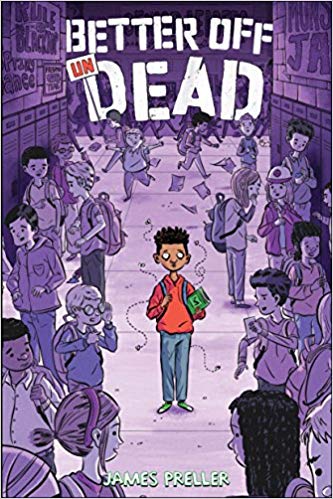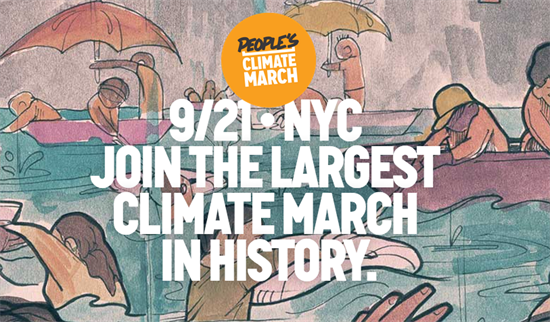–
–
In 2017, I wrote a middle-grade novel (grades 4-7) that was set in the “not-so-distant future,” titled Better Off Undead. As backdrop to the main narrative, the story quietly speculated on various environmental issues. I even took inspiration from the original “Robocop” movie, which brilliantly spoofed popular culture by featuring a variety of advertisements within the story.
–
–
I bring this up because of the coronavirus and all the protection masks we’re seeing in our daily newsfeed. The images are everywhere. Below, a very brief scene that features the commercial I imagined. For context, I don’t think you need much. Adrian is a high-functioning 7th grade zombie and he has returned home after school. He makes his younger brother, Dane, a hamburger.
Booklist gave this book a starred review and called it “Hilarious.” For what that’s worth!
–
I leaned against the counter while he munched happily, idly watching the TV by the sink. One of Dane’s favorite commercials came on, some company selling gas masks. A series of shots showed various models walking around wearing the masks -– while shopping at the mall, standing in an elevator, moving down a crowded hallway, even at a cocktail party. Anytime there were lots of people around, they showed a gorgeous body in a gas mask. The commercial cut to a close-up of a blonde actress. She yanked off her mask and smiled at us.
“EarthFirst Gas Masks,” she announced. “Sleek and stylish and eighty-percent more effective than ordinary surgical masks for protection against air pollution and other contagion!”
Her white teeth gleamed, her glossy red lips glistened, and something inside me stirred. Next a handsome actor with flecks of gray in his hair stepped beside her. “That’s right, Vanna. These masks will keep you safe from airborne diseases like dengue fever and super-duper-flu and,” he paused to shake his head, winking mischievously, “who knows what other germs are floating around out there nowadays! I know I’m not taking chances!”
Vanna laughed. Ho, ho, ho.
I snapped off the TV.
“Hey,” Dane protested.
“You don’t need to watch that stuff,” I said, “It’ll fry your brains.”
“I want one for Christmas,” Dane said.
“Christmas? Already? Let’s get past Halloween first. Then you can write to Santa,” I said. “I think there’s a new line of masks coming out just for kids. I read there’s even going to be a Darth Vadar mask.”
Dane sat swinging his feet in the air, munching silently, probably imagining himself in a Darth Vadar gas mask. He stopped chewing and looked at me with a funny expression. “Shouldn’t you cook it first?” he asked. He pointed at the package of raw hamburger meat.
I discovered that I had a hunk of raw meat in my hand . . . and in my mouth. I immediately spat it into the sink -– disgusting! -– and rinsed my mouth with water. “What the heck?!” I said, bringing a hand to my suddenly churning stomach. I saw that almost all of the raw meat from the package was gone. “Why didn’t you tell me sooner? I didn’t know I was eating it.”
Dane bit into his burger. A trickle of grease rolled down his chin, shimmering in the light. “I didn’t know people could eat hamburger meat without cooking it.”
“Don’t tell Mom, okay? I don’t want her to get more freaked out than she already is.”
Dane nodded.
“Remember to put the dishes in the sink when you’re done,” I reminded him. “I’m going up to my room.”
I trudged up the stairs, head spinning. What was happening to me?
SOME REVIEWS . . .
“This uproarious middle grade call to action has considerable kid appeal and a timely message. A strong addition to school and public library collections.” — School Library Journal.
Preller stylishly delivers a supernatural tale of a middle-schooler who craves normalcy, and environmental issues with some currency make the story even more relatable. Espionage, mystery, and the undead make for a satisfying experience for readers, and they’ll be glad of the hint at a follow-up. — Bulletin for the Center of Children’s Books.
 a fatal hit-and-run accident over the summer, aptly named Adrian Lazarus is off to seventh grade, sporting a hoodie to hide his increasing facial disfigurement and lunching on formaldehyde smoothies to keep himself together. Simultaneously resenting and yet understanding the varied reactions of his schoolmates—which range from shunning to all-too-close attention from a particularly persistent bully—Adrian is also surprised and pleased to discover that he has allies, notably Gia Demeter, a new girl with a peculiar ability to foretell certain events. Preller might have played this as a light comedy (and there are some hilarious bits), but he goes instead for darker inflections. Even as Adrian sees himself becoming ominously aggressive (while developing tastes for roadkill and raw meat), his discovery that fabulously powerful data miners Kalvin and Kristoff Bork are ruthlessly scheming to put him under the knife in search of the secret to his longevity cranks the suspense up another notch. Nonetheless, in a series of splendidly lurid exploits, Adrian beats the odds as he fights for a well-earned happy ending.” — Booklist, Starred Review
a fatal hit-and-run accident over the summer, aptly named Adrian Lazarus is off to seventh grade, sporting a hoodie to hide his increasing facial disfigurement and lunching on formaldehyde smoothies to keep himself together. Simultaneously resenting and yet understanding the varied reactions of his schoolmates—which range from shunning to all-too-close attention from a particularly persistent bully—Adrian is also surprised and pleased to discover that he has allies, notably Gia Demeter, a new girl with a peculiar ability to foretell certain events. Preller might have played this as a light comedy (and there are some hilarious bits), but he goes instead for darker inflections. Even as Adrian sees himself becoming ominously aggressive (while developing tastes for roadkill and raw meat), his discovery that fabulously powerful data miners Kalvin and Kristoff Bork are ruthlessly scheming to put him under the knife in search of the secret to his longevity cranks the suspense up another notch. Nonetheless, in a series of splendidly lurid exploits, Adrian beats the odds as he fights for a well-earned happy ending.” — Booklist, Starred Review“Preller takes the physical and emotional awkwardness of middle school to grisly levels . . . [and] thoughtfully chronicles the anxieties of middle school, using a blend of comedy and horror, to send a message of empowerment and acceptance.” — Publishers Weekly.
–
NOW AVAILABLE IN PAPERBACK AND CHEAP!
–

































